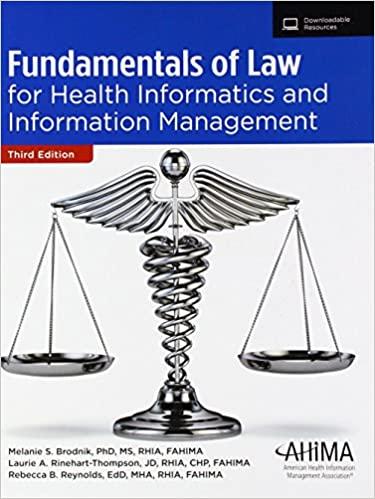Question
Liquidated Damages. Carnack contracts to sell his house and lot to Willard for $100,000. The terms of the contract call for Willard to make a
Liquidated Damages. Carnack contracts to sell his house and lot to Willard for $100,000. The terms of the contract call for Willard to make a deposit of 10 percent of the purchase price as a down payment. The terms further stipulate that if the buyer breaches the contract, Carnack will retain the deposit as liquidated damages. Willard makes the deposit, but because her expected financing of the $90,000 balance falls through, she breaches the contract. Two weeks later, Carnack sells the house and lot to Balkova for $105,000. Willard demands her $10,000 back, but Carnack refuses, claiming that Willard's breach and the contract terms entitle him to keep the deposit. Discuss who is correct. (See Damages.)
2. 17-2. Measure of Damages. Before buying a house, Dean and Donna Testa hired Ground Systems, Inc. (GSI), to inspect the sewage and water disposal system. GSI reported a split system with a watertight septic tank, a wastewater tank, a distribution box, and a leach field. The Testas bought the house. Later, Dean saw that the system was not as GSI describedthere was no distribution box or leach field, and there was only one tank, which was not watertight. The Testas arranged for the installation of a new system and sold the house. Assuming that GSI is liable for breach of contract, what is the measure of damages? [Testa v. Ground Systems, Inc., 206 N.J. 330, 20 A.3d 435 (App. Div. 2011)] (See Damages.) 3. 17-3. Consequential Damages. After submitting the high bid at a foreclosure sale, David Simard entered into a contract to purchase real property in Maryland for $192,000. Simard defaulted (failed to pay) on the contract, so a state court ordered the property to be resold at Simard's expense, as required by state law. The property was then resold for $163,000, but the second purchaser also defaulted on his contract. The court then ordered a second resale, resulting in a final price of $130,000. Assuming that Simard is liable for consequential damages, what is the extent of his liability? Is he liable for losses and expenses related to the first resale? If so, is he also liable for losses and expenses related to the second resale? Why or why not? [Burson v. Simard, 35 A.3d 1154 (Md. 2012)] (See Damages.)
Step by Step Solution
There are 3 Steps involved in it
Step: 1

Get Instant Access to Expert-Tailored Solutions
See step-by-step solutions with expert insights and AI powered tools for academic success
Step: 2

Step: 3

Ace Your Homework with AI
Get the answers you need in no time with our AI-driven, step-by-step assistance
Get Started


